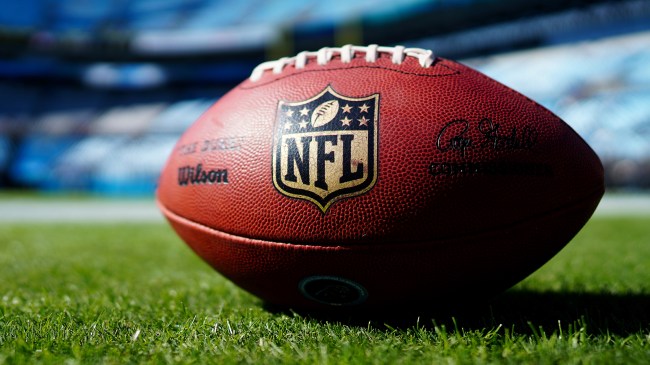
Getty Image
The start of September is obviously a significant milestone for football fans who will spend the next few months scheduling their lives around the NCAA and NFL games that take center stage during the week. As you likely know, Saturdays are devoted to college football while the pros reign supreme on Sunday—a fact most people take for granted but can actually be traced back to a law Congress passed in the early 1960s.
The NFL has slowly but surely expanded its horizons over the years. The first Monday Night Football showdown was held in 1970, Thursday Night Football (technically) made its debut in 2006, and the league appears to be placing some new emphasis on Christmas games after being fairly content with letting the NBA corner that market in the past.
It’s not a huge stretch to assume the NFL would love to take advantage of the eyeballs it would undoubtedly attract if it had the ability to schedule games on Saturdays on a consistent basis, but as I mentioned above, there’s a pretty ironclad legal reason we have to wait until the end of the season for those contests.
The Congressional law that largely prohibits the NFL from scheduling games on Saturdays
The NFL was still competing with the AFL for viewers in 1961 when then-commissioner Pete Rozelle decided it would be in the league’s best interest to negotiate a broadcasting deal with CBS that bucked tradition thanks to a contract that hinged on a revenue-sharing scheme involving every team as opposed to having franchises shop their rights individually.
Rozelle positioned the approach as the best one for the collective good of the NFL, as it made life easier for small-market squads and theoretically promoted more financial stability across the entire organization. However, it eventually caught the attention of the Justice Department before a judge in a federal court in Philadelphia ruled the CBS deal had violated antitrust laws.
That ruling led to the NFL turning to Congress, which ultimately passed the Sports Broadcasting Act of 1961 in the fall of that year. The bill (which was signed into law by John F. Kennedy), gave major professional sports leagues the green light to bundle games in that exact manner, but the NCAA also went out of its way to lobby lawmakers in an attempt to prevent the pros from encroaching on its territory.
The act contains language that limits the window during which NFL games can be shown on television between the second Friday in September and the second Saturday in December; during that span, they can’t be aired past 6 P.M. on Friday (to protect high school football) or at any point on Saturday, which essentially led to college football monopolizing that day of the week.
It also worked out pretty well for the NFL, which has come to dominate Sundays. It still schedules plenty of games on Saturdays in the closing weeks of the season (as well as the playoffs) and even eyed the possibility of taking over the entire weekend when the fate of the 2020 college football campaign was still in limbo during the pandemic.
I’d like to thank Congress for ensuring millions of Americans do basically nothing productive with their weekend for a good three months.